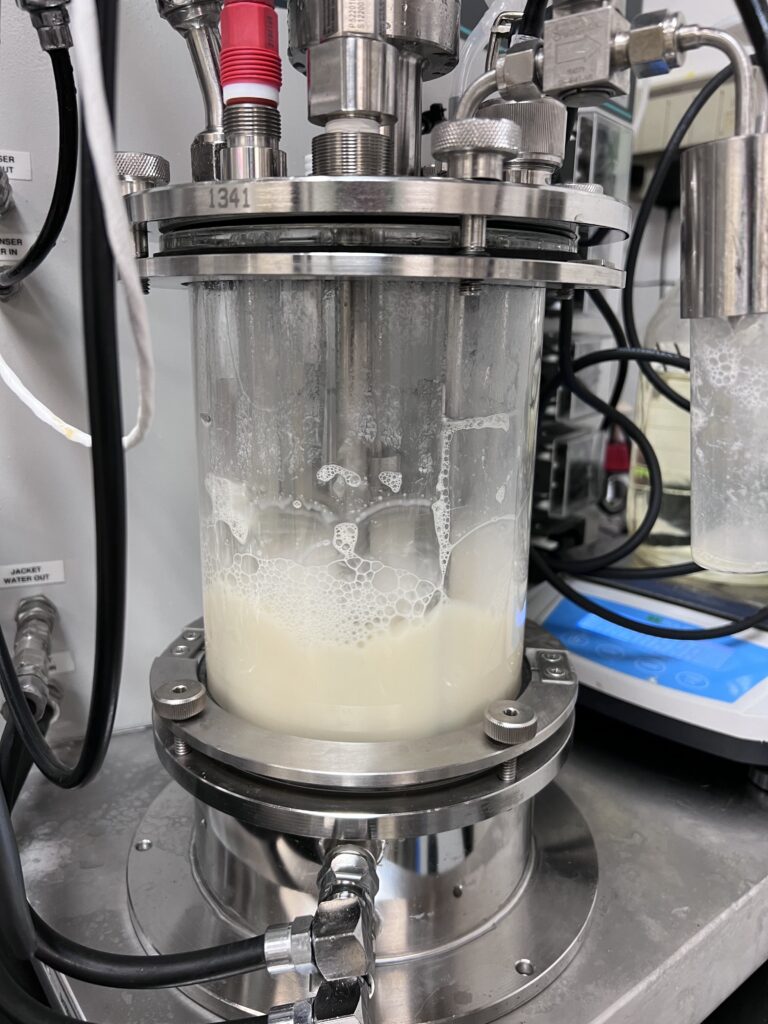Yali Bio Announces ‘World’s First’ Yeast-Derived Breast Milk Fat from Precision Fermentation
4 Mins Read
Californian startup Yali Bio has created what it claims is the world’s first breast milk fat made from yeast, using precision fermentation to allow infant formulas to more closely match the nutrition provided by human milk.
Yali Bio, which makes alternative fats using precision fermentation, has entered the infant nutrition space with its newest innovation, a yeast-derived recombinant breast milk fat to improve the nutritional credentials of infant formula.
The Californian biotech startup has produced a fat called OPO (Oleic-Palmitic-Oleic), which is chemically known as 1,3-dioleoyl-2-palmitoyl-glycerol and is naturally found in breast milk. It’s an essential component for infant health, allowing them to absorb nutrients.
But OPO is among the key nutritional differences between breast milk and infant formula, with Yali Bio claiming there’s no economical source of pure OPO available to infant formula producers, which is where its alternative comes in.

Why Yali Bio focused on OPO
The fats in breast milk are triacylglycerol (more commonly known as triglycerides), which facilitates efficient nutrient absorption in infants’ guts. Commercial infant formulas rely on vegetable oils (like palm, coconut, canola and sunflower) or cow’s milk instead, but Yali Bio says neither contains optimal levels of OPO.
The composition and distribution of the fatty acids in vegetable oils differ from those in human milk, which hinders nutrient absorption and growth in infants. To better replicate the nutrient value, breast milk fat substitutes have recently been developed through enzymatic interesterification reactions. But while producing them via in-vitro enzyme-catalysis of purified vegetable oils can have the desired properties, this is challenging and expensive to manufacture.
To sidestep this issue, Yali Bio uses its recombinant yeast platform to efficiently produce high-quality structured fats that resemble breast milk fats in a cost-effective process. At scale, this tech can allow manufacturers to put more OPO in their formula products and potentially present better health outcomes for infants.
“We are at a pivotal point in the growth of our company, which is transitioning from a platform innovator with strong scientific proofs of concept, into a business that can serve multiple markets in food and nutrition,” said Yali Bio co-founder and CEO Yulin Lu.
“Using precision fermentation to make high-purity, functional fats and lipids is not only important for food and nutrition, but it can also be transformative for society and the planet,” he added.

The importance of alternative breast milk fats
Yali Bio’s breast milk fat innovation was supported by a $370,000 grant from the National Institutes of Health’s (NIH) Eunice Kennedy Shriver National Institute of Child Health and Human Development. “We’re grateful for the support of NIH that allowed our team to conduct this important research, especially given the potential long-term impact it could have on infant nutrition,” said Aravind Somanchi, Yali Bio’s VP of biology and principal investigator on the project.
Underlining the importance of its breakthrough, the company points out that breast milk is “widely accepted as the best source of nourishment for infants, according to the WHO”, but most of the world’s 130 million babies born annually are fed infant formula at some point. Research has shown that about 5-10% of women are physiologically unable to breastfeed, but many more say they’re not producing enough or have nutritional deficiencies in their milk.
In the US alone, less than half of women continue to exclusively breastfeed after three months, and only a quarter keep doing so at six months, which is the recommended period by the American Academy of Pediatrics. One 2019 study of 552 mothers found that about 70% experienced breastfeeding difficulties (mostly within the first month) like “cracked nipples, perception of insufficient amount of milk, pain and fatigue”. Many women also choose not to breastfeed, making nutritionally dense alternatives such as Yali Bio’s crucial.
The 2021-founded company – which has raised $5M to date – plans to continue developing its OPO research, alongside its other alternatives to animal and plant-based lipids and fats, which it says can improve nutrition and lower the greenhouse gas emissions of food production. The company’s fats have already been used to make animal-free milk, ice cream, butter, and foie gras, and are said to be key to the taste and texture of products like cheese, desserts, baked goods, and even meat.
In the breast milk realm, fellow Californian startup Checkerspot has similarly developed a fat analogue that can mimic OPO, using microalgae fermentation. Others are working on breast milk proteins like lactoferrin – Israel’s Wilk makes a cell-cultured version and New York-based Helaina uses precision fermentation – while France’s Nūmi is working on reproducing breast milk itself, with as many constituents as possible (including proteins).



